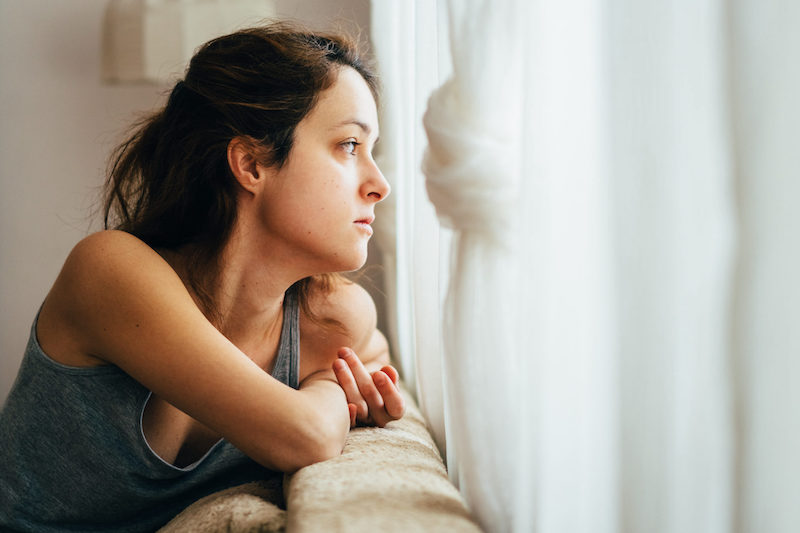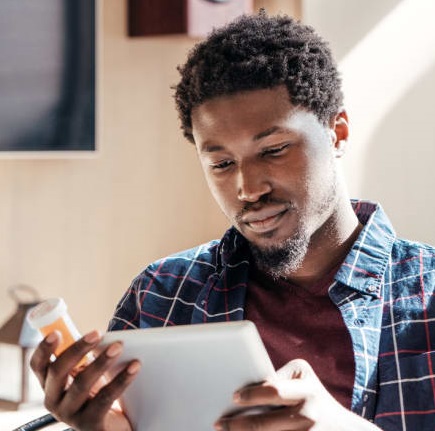COVID-19 Positive? Here’s How to Self-Isolate

November 12, 2020
COVID-19 cases are rising again in many parts of the world, with projections suggesting that more people will become infected this fall and winter.
If you have tested positive for COVID-19 - whether you experience mild symptoms, serious illness or no symptoms at all - it’s important to self-isolate, to avoid passing the virus to others. How long you should isolate varies, based on several factors that can be determined by you and your doctor.
Kenneth Sable, M.D., southern region president and emergency medicine specialist at Hackensack Meridian Health shares advice on how to isolate properly:
What to do during isolation
Because COVID-19 is contagious, and since no vaccine or treatment is available yet, isolating is one way to help stop the spread of the virus. If you test positive for COVID-19, stop going to work, running errands, interacting with friends or relatives and isolate at home.
If you test positive for COVID-19 and you live with other people, take the following steps:
- avoid all people and pets in your home as much as possible
- stay in a separate room from everyone else (such as a bedroom), including mealtimes
- use a different bathroom than everyone else, if possible
- clean the surfaces in your bedroom and bathroom daily, if you’re able to do so
- keep a window open for air circulation
- if you normally care for children or older adults, have someone else take over, if possible
- if you must interact with others, wear a mask over your nose and mouth and keep your distance
- don’t prepare food for others
When to stop isolating
To determine when to stop self-isolating, consider how COVID-19 affected you.
If you tested positive but never experienced symptoms, you may stop isolating:
- 10 days after your positive test, if you continue to remain symptom-free, OR
- if you get re-tested and have two negative tests at least 24 hours apart
If you had COVID-19 symptoms, you may stop isolating:
- 10 days after your positive test, if you haven’t had a fever for at least 24 hours (without taking fever-reducing medication) and if your symptoms are improving
- if you have a compromised immune system, your doctor may want you to isolate for longer
If you were hospitalized for COVID-19 and are sent home to recover, you may stop isolating:
- 10 to 20 days after the onset of your symptoms, unless your doctor recommends a different length of time
- if your doctor recommends COVID-19 testing, you may stop isolating sooner if you have two negative tests at least 24 hours apart
“If you lost your sense of smell or taste, it’s okay to stop isolating if your other symptoms improve and this one doesn’t, because it may take a while to recover those senses,” says Dr. Sable.
The difference between isolation and quarantine
You may be inclined to use the words “isolation” and “quarantine” interchangeably because they both refer to people staying at home, but they have different meanings.
People who self-quarantine have unknown COVID-19 status but are at risk because they’ve interacted with someone COVID-positive or traveled where COVID-19 levels are high. They can end their quarantine when they receive results of a COVID-19 test or if two weeks pass after exposure and they don’t develop symptoms.
People who self-isolate have a positive COVID-19 status. If you were quarantining and receive a positive test, your status changes from quarantining to isolating.
Overall, each person’s course with COVID-19 is different. Everyone affected should talk to their doctor about a plan that makes sense for them.
Next Steps & Resources:
- Meet our source: Kenneth Sable, M.D., MBA, FACEP
- To make an appointment with a doctor near you, call 800-822-8905 or visit our website.
The material provided through HealthU is intended to be used as general information only and should not replace the advice of your physician. Always consult your physician for individual care.
Find a doctor near me
Can You Get COVID Twice?

Can You Get COVID Twice? Learn about COVID-19 reinfection from Drs. Nehmad and Unuigbe. Get the facts and stay safe. Call 800-822-8905.
Is COVID-19 Airborne?

Learn about COVID-19 airborne transmission from Dr. Raoof. Reduce your risk with expert advice and safety tips. Call 800-822-8905.
Find a doctor near me

Recovered from COVID-19? Why You Still Need a Vaccine
Dr. Thomas Bader has answered common questions about the COVID-19 vaccine that you may have if you’ve already experienced the illness

5 Family-Friendly Tips for Cleaning and Disinfecting at Home
Keeping a clean, germ-free home is important all year round. But between the flu and COVID-19, our household chores are more important than ever.

COVID Concerns? How to Decline Invitations but Maintain Good Relationships
As we get closer to the holidays and the weather gets colder, you may start to get invited to holiday parties or other indoor gatherings.

Why You Should Continue Wearing A Mask After Getting the COVID-19 Vaccine
To be clear - even after you receive the COVID-19 vaccine, it’s important to continue behaviors like mask-wearing and social distancing.
